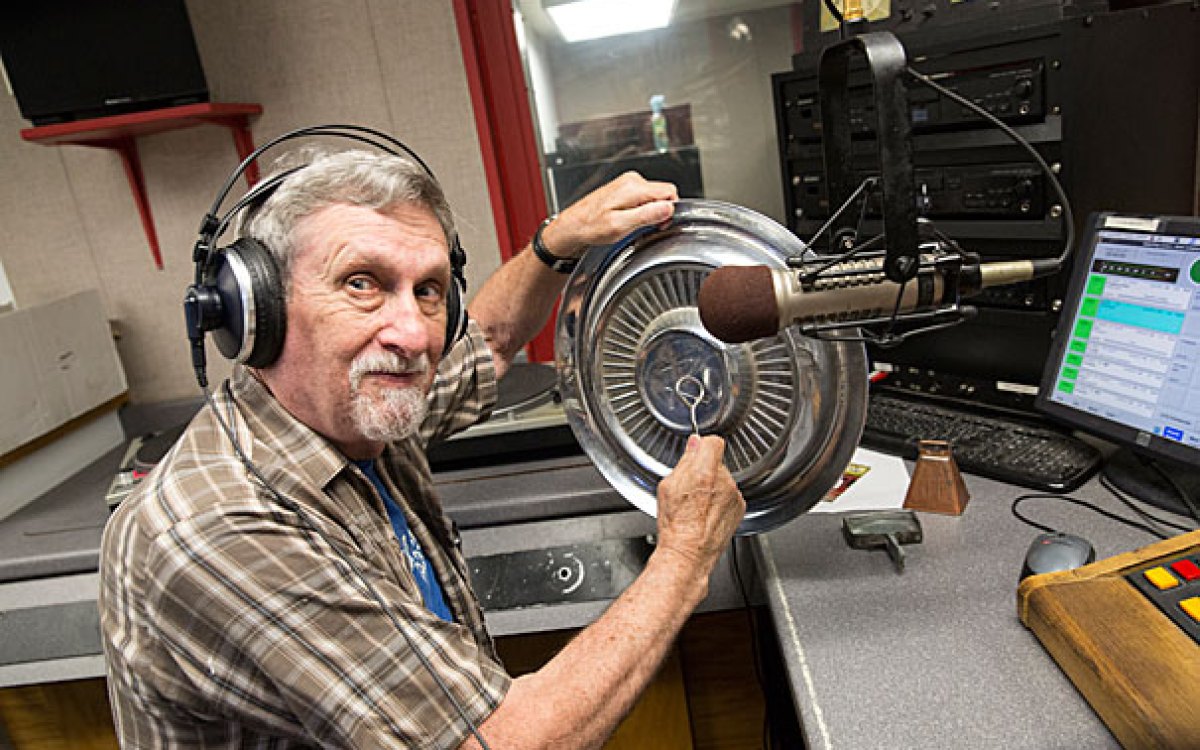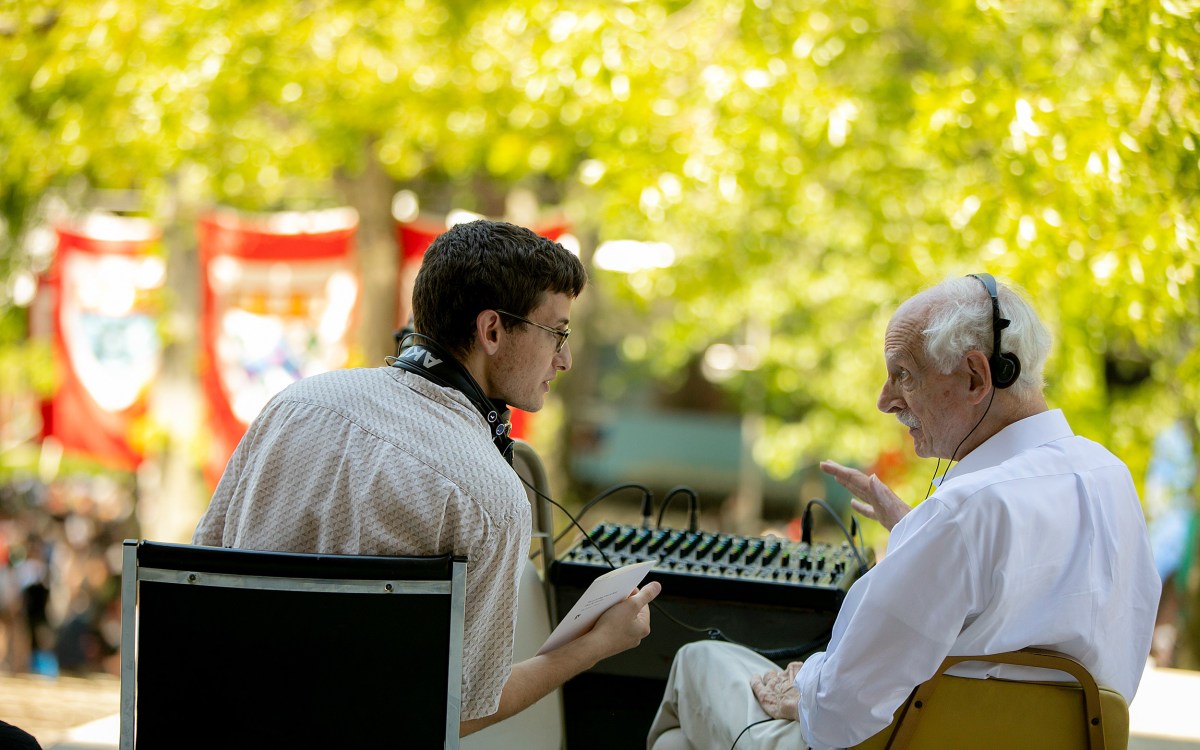WHRB keeps classical connections

WHRB president Allison Pao ‘21 with her mandolin. Photo courtesy of Allison Pao
In the time of COVID-19, student radio station pays tribute to canceled concerts
The coronavirus pandemic has reshaped the world as we know it, and the arts are no exception. In the face of these changes to the realm of classical music, Harvard’s radio station WHRB (95.3 FM) is responding in innovative ways.
On May 6, the station will broadcast a 15-hour feature paying tribute to the canceled Boston area concerts, the musicians who have had to reimagine their music-making, and the performing arts organizations facing difficult decisions. Titled, “What Could Have Been,” the show will highlight classical music artists from the local community who will talk about how they’re adapting to the crisis, how they continue to make music, and how they find hope during these difficult times. Interview subjects include Gary Dunning of the Celebrity Series of Boston, Scott Metcalfe of Blue Heron, and members of the Boston Philharmonic Youth Orchestra.
WHRB president Allison Pao ’21 said it’s been a collaborative effort to stay on air 24/7, with staff on duty at all hours. An undergraduate student comes in every Saturday afternoon to produce regular Metropolitan Opera broadcasts. General manager Emily Spector ’21, chief studio engineer Margaux Winter ’21, and former chief engineer Hamish Nicholson ’20 live nearby and regularly come into the station to manage basic operations.
“Undergraduate staff have been working hard to produce broadcasts remotely as well, recording our classical afternoon concerts from 1 to 6 p.m. on weekdays,” Pao added. “This in itself is a massive effort which requires ripping hundreds of CDs and recording hundreds of announcing breaks.”
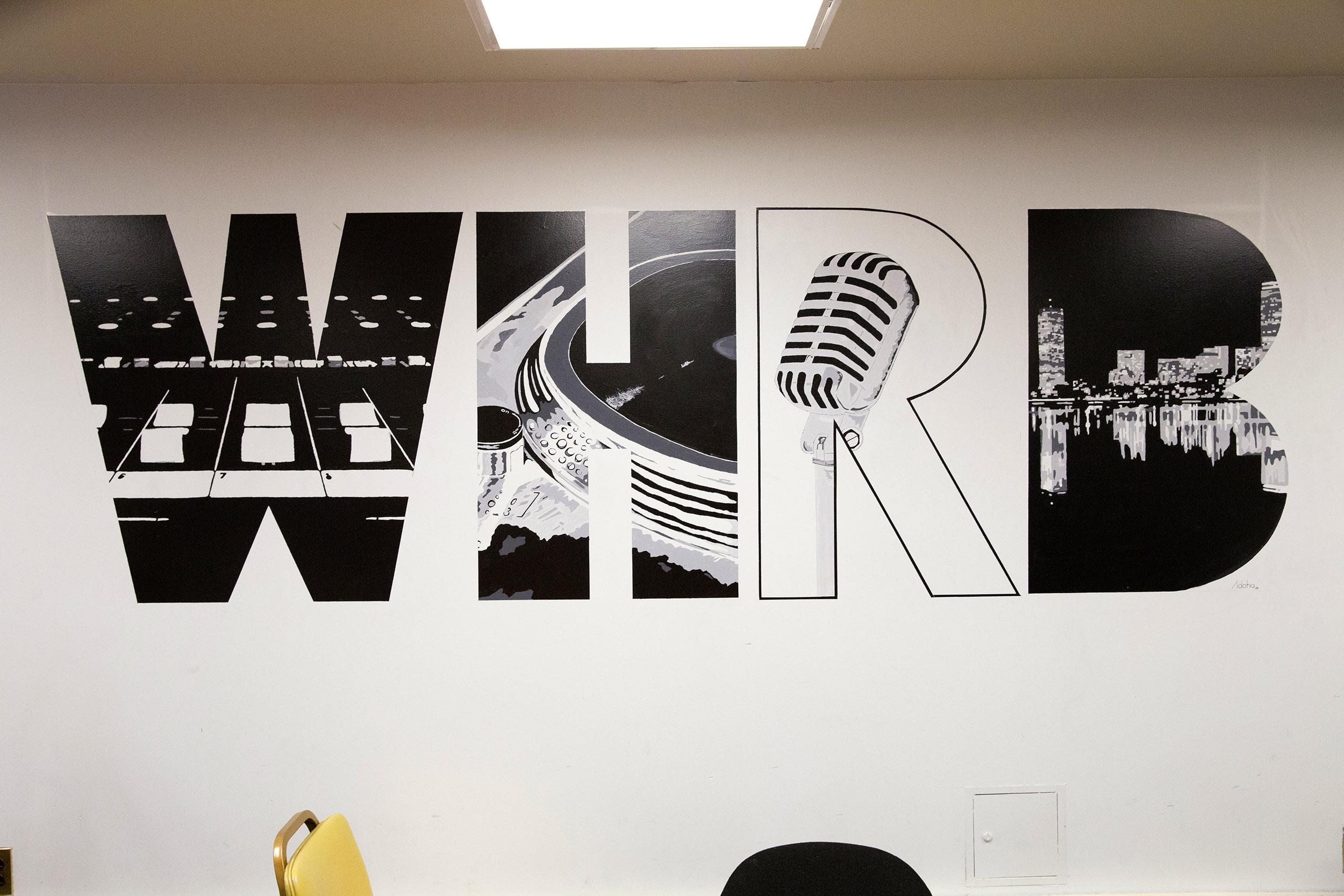
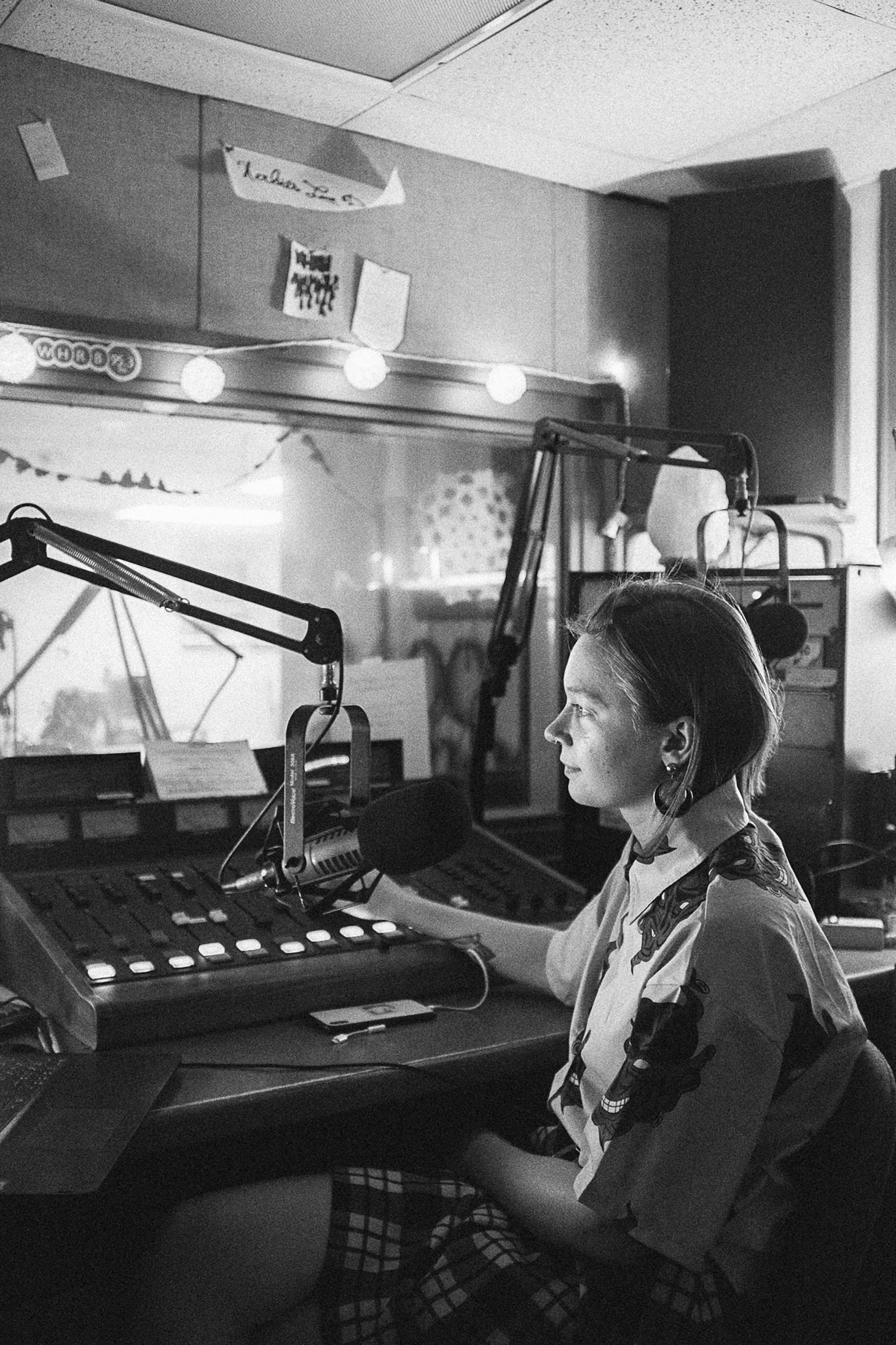
Max Filipchenko ’20 in the studio at WHRB.
Photos by Jon Chase/Harvard Staff Photographer and Hamish Nicholson ’20
WHRB is also currently the only way that listeners can now hear the Harvard Memorial Church Sunday Services, which are being aired pre-recorded as the Memorial Church staff can no longer come to campus.
“We published our station’s response to the pandemic on March 16 as well as an update on April 21 asking for donations on our website,” Pao said. “We are raising money because we are projected to lose over a third of our annual operating budget in the next few months due to canceled ad campaigns from our clients, many of whom are performing arts organizations in the Boston area.”
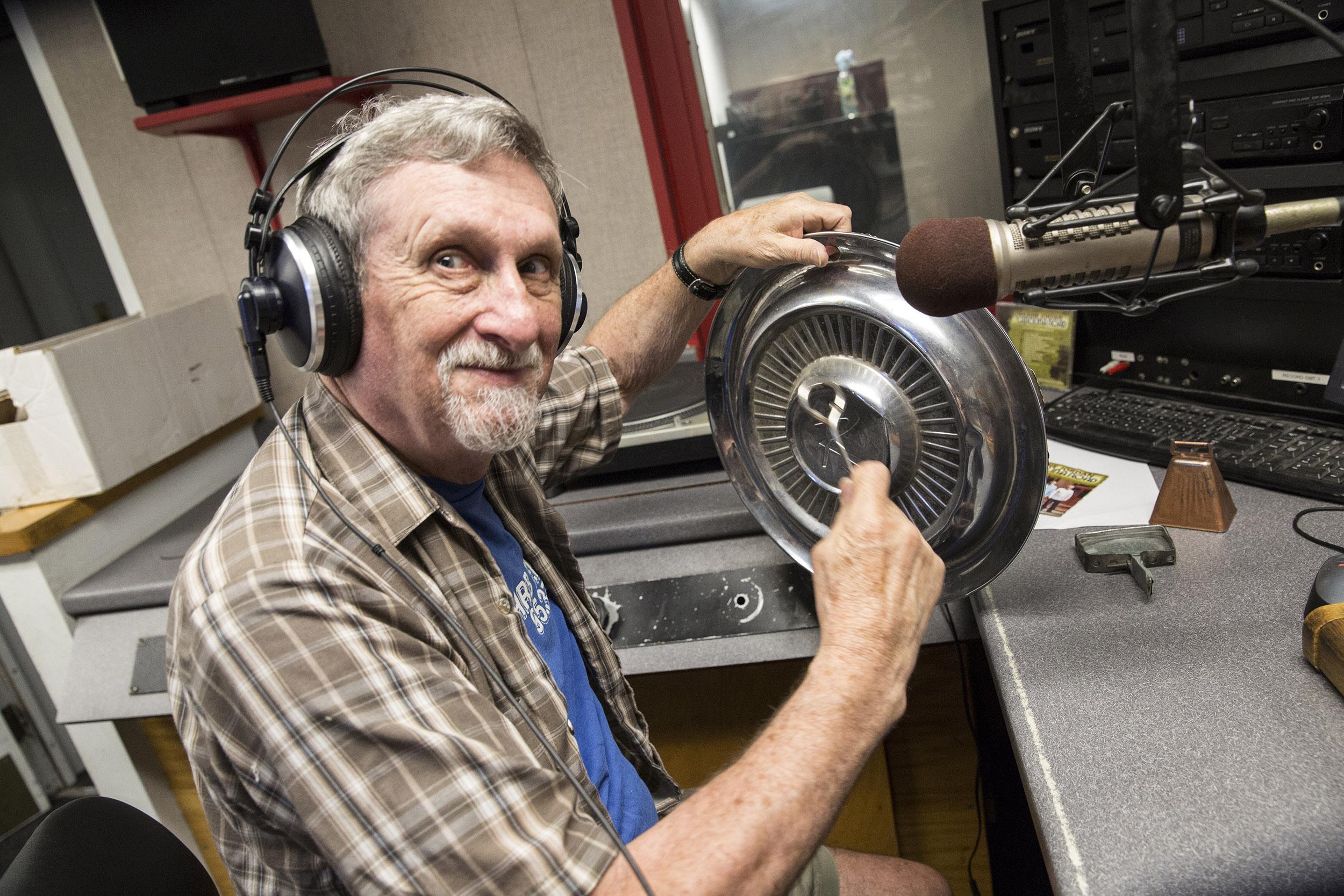
Lynn Joiner ’61, host of the “Hillbilly at Harvard” show since the 1970s, ceremoniously bangs an old Rambler hubcap to begin and end the show.
Jon Chase/Harvard file photo
WHRB’s community of students, listeners, and alumni remains strong. The station has been hosting virtual social events for more than 220 active undergraduate members, and sharing quarantine playlists for each other, Pao said. WHRB will continue to mail out the next edition of the Program Guide to more than 5,000 print subscribers, and plans to host virtual reunions and tours for alumni this month.
The team remains determined to keep things running. The radio station prides itself on being “entirely self-supporting,” Spector said. As a commercial nonprofit business, the station is provided studio space, but otherwise does not receive funding from the University.
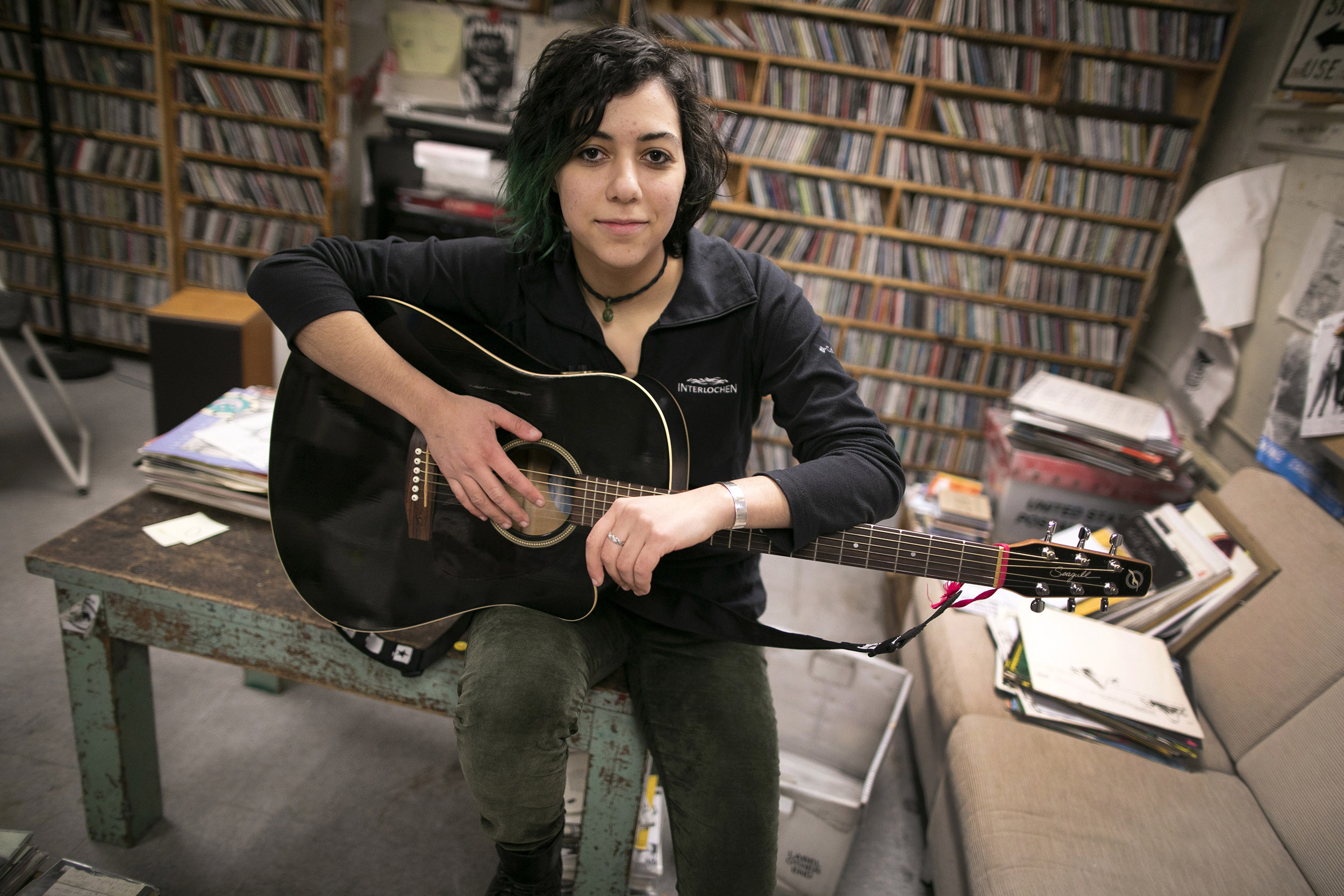
Emily Spector ’21 is pictured with her guitar at WHRB, the radio station at Harvard, where Spector is the general manager.
File photo by Stephanie Mitchell/Harvard Staff Photographer
“WHRB studios have a very particular aesthetic; they’re kind of grungy and very much lived-in,” she said. “Our libraries for the various departments have writing on the walls and ceiling, with photos of previous WHRBies pinned up randomly in the rooms. If you put something down in the studio, it’ll stay there and not get moved. It contributes to the mess, in a way, but it adds character. One of our trustees put a penguin slipper (our mascot is a penguin) on a windowsill six months ago, and it’s still there!”
“The incredible silver lining of this crisis is that while we are challenged to rapidly innovate, we are learning an incredible amount, and I think we will emerge from this period even stronger than before,” Pao said.
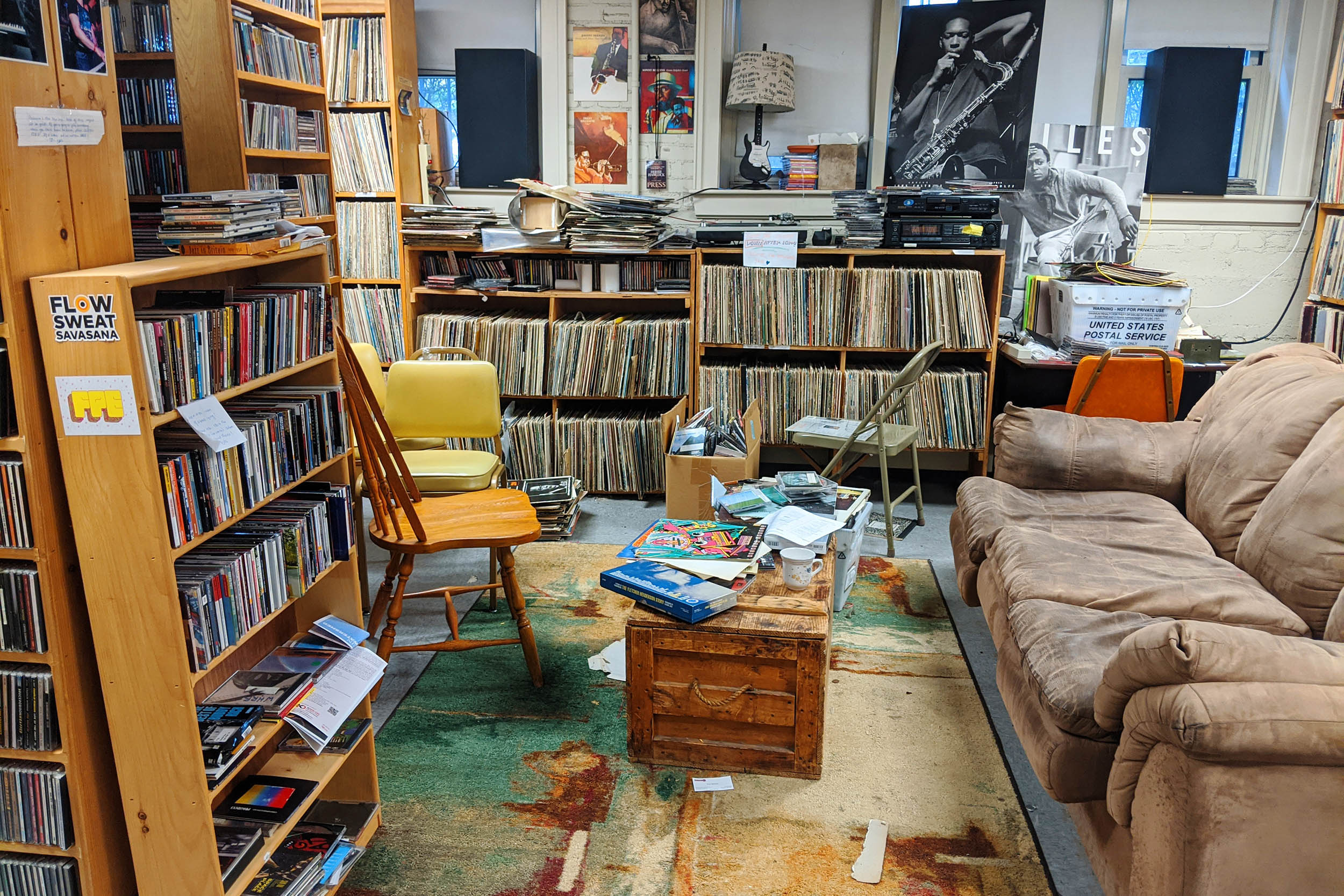
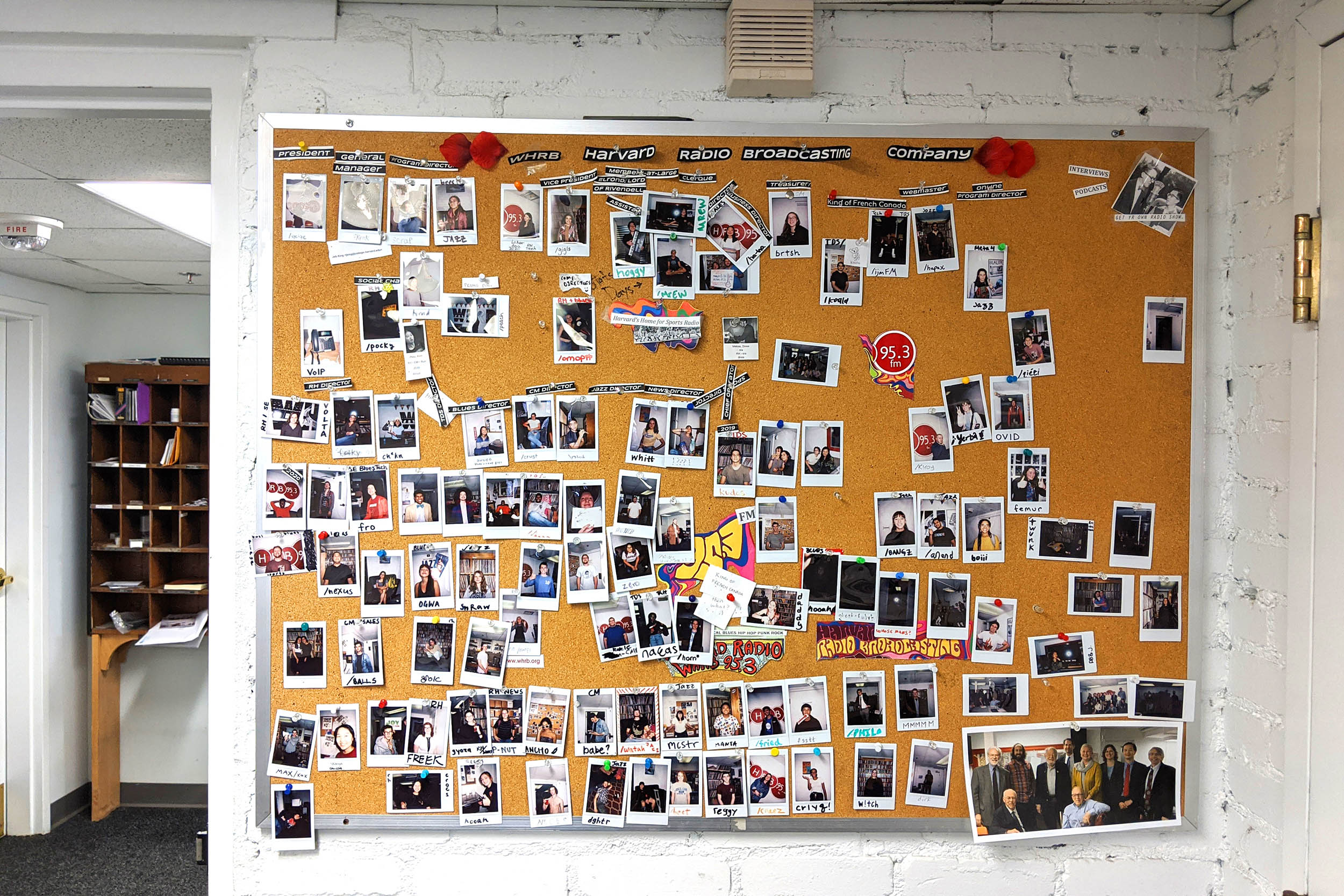
WHRB studios.
Photos by Emily Spector
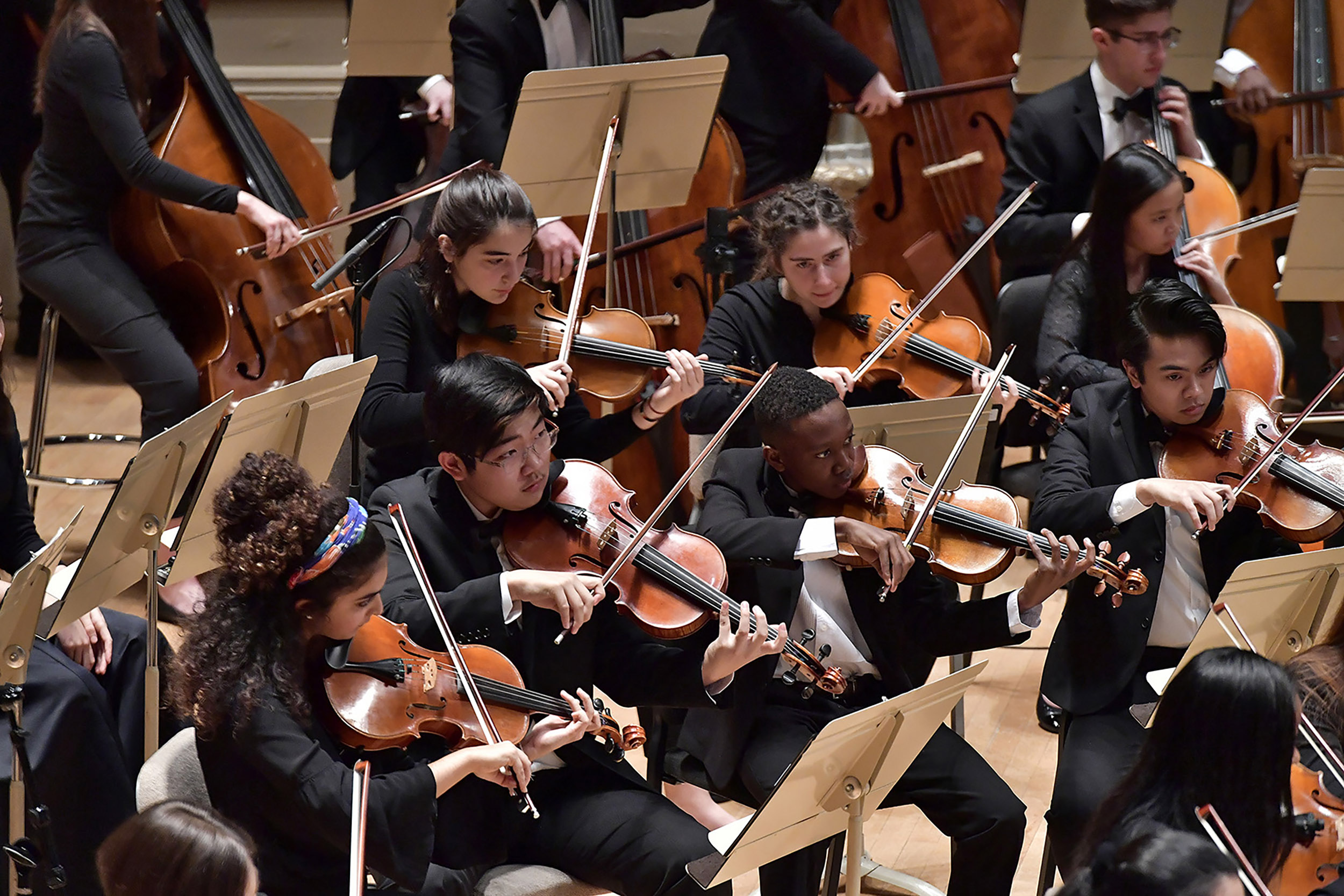
Boston Philharmonic Youth Orchestra performs. Members of the orchestra will be interviewed during the 15-hour broadcast that pays tribute to canceled Boston area concerts.
Photo by Paul Marotta



